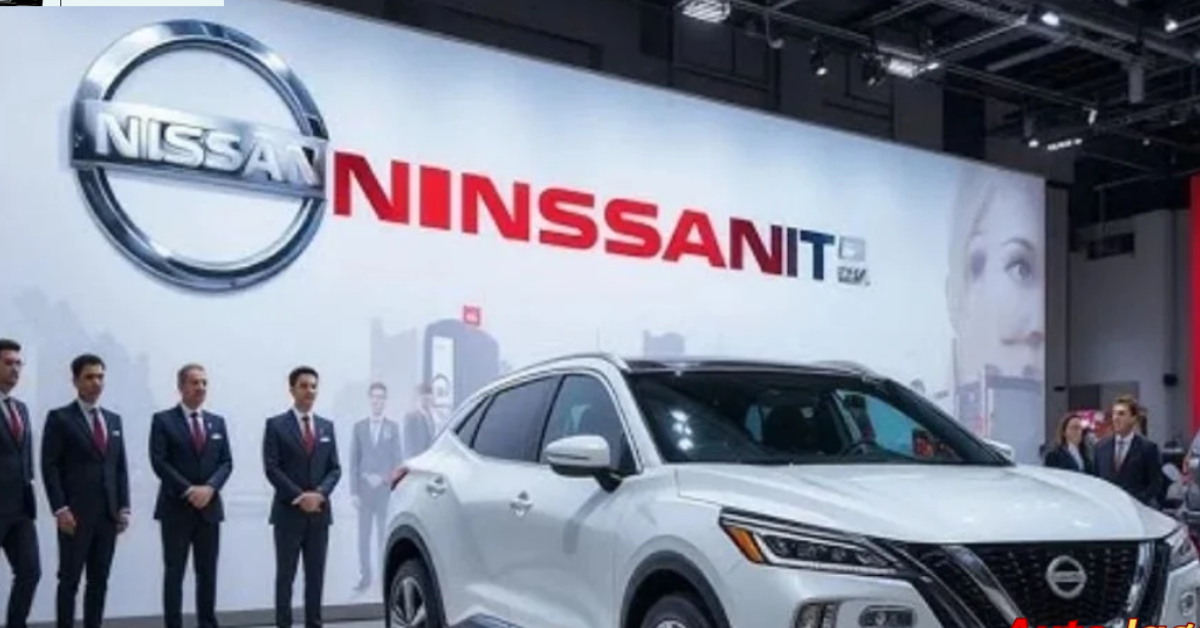The automotive industry is undergoing a dramatic transformation, driven by environmental regulations, changing consumer preferences, and the growing popularity of electric and hybrid vehicles. In this evolving landscape, global carmakers are reassessing their strategies to stay relevant and competitive.
Nissan, a brand long associated with innovative cars like the Leaf and GT-R, has recently announced a strategic shift toward hybrid technology. This move is designed to revitalize sales, optimize production, and prepare for a more sustainable future.
But why is Nissan turning to hybrids, and what does it mean for the company, consumers, and the automotive market at large? Let’s explore.
The Market Context: Why Hybrids Now?
Several market dynamics are pushing automakers, including Nissan, toward hybrid technology:
1. Growing Environmental Regulations
Governments worldwide are imposing stricter emission norms, pushing carmakers to adopt cleaner drivetrains. Hybrid vehicles offer a bridge between traditional internal combustion engines (ICE) and full EVs, allowing manufacturers to meet emission targets while maintaining performance.
2. Consumer Preferences Shifting
While EVs are gaining traction, many consumers still have range anxiety and charging concerns. Hybrids provide a practical solution:
- Lower fuel consumption than conventional ICE cars.
- No dependency on charging infrastructure.
- Familiar driving experience for traditional vehicle owners.
3. Cost-Effective Transition for Automakers
Developing full-electric platforms requires massive investment in R&D and production facilities. Hybrids allow manufacturers like Nissan to:
- Leverage existing platforms.
- Reduce development costs.
- Offer greener vehicles without the full EV price premium.
Nissan’s Hybrid Strategy
Nissan is taking a multi-pronged approach to integrate hybrids into its lineup:
1. Revamping Existing Models
Popular Nissan models like the X-Trail, Rogue, and Altima are expected to receive hybrid variants, combining fuel efficiency with Nissan’s signature driving dynamics.
2. Technology Focus
Nissan’s hybrid strategy will focus on e-Power and mild-hybrid systems:
- e-Power: A series-hybrid system where the gasoline engine charges the battery, and the electric motor drives the wheels, providing EV-like performance.
- Mild Hybrids: Enhance efficiency and reduce emissions without adding significant complexity or cost.
3. Global Market Alignment
Nissan is tailoring its hybrid strategy based on regional demand:
- In Europe and Japan, stricter emission regulations make hybrids a priority.
- In India, Southeast Asia, and Latin America, hybrids provide an affordable, fuel-efficient option amid rising fuel prices.
Benefits for Consumers
Nissan’s shift to hybrid technology brings several advantages for buyers:
- Better Fuel Efficiency: Hybrids consume less fuel than traditional ICE vehicles, reducing running costs.
- Lower Carbon Footprint: Reduced emissions contribute to cleaner air and help consumers meet sustainability goals.
- Smoother Driving Experience: Electric motors provide instant torque and quiet operation, making city driving more comfortable.
- Tax Incentives: Many countries offer subsidies, tax benefits, or reduced registration fees for hybrid vehicles.
These benefits make hybrids an attractive choice for urban commuters, family buyers, and environmentally conscious consumers.
Challenges for Nissan
While hybrids offer significant advantages, there are some challenges Nissan needs to address:
- Competition: Toyota, Honda, and Lexus already dominate the hybrid market, meaning Nissan needs strong differentiation.
- Consumer Education: Many buyers are unfamiliar with hybrid technology and its benefits.
- Price Sensitivity: Hybrid systems increase production costs, which may result in higher vehicle prices.
Nissan’s success will depend on how well it balances affordability, technology, and performance in its hybrid offerings.
How Hybrids Fit Into Nissan’s EV Roadmap
Nissan’s hybrid strategy is not just about short-term sales; it is also part of a long-term vision for electrification:
- Bridge to Full EVs: Hybrids serve as a stepping stone for customers hesitant to switch to full-electric vehicles.
- Platform Flexibility: Nissan can adapt its current platforms for hybrid use while preparing for full EV production in the near future.
- Global EV Integration: By combining hybrids and EVs, Nissan ensures its product lineup is compliant with future emission regulations worldwide.
Essentially, hybrids are a strategic pivot that allows Nissan to remain competitive during the transition from ICE to EV.
Competitors and Market Position
Nissan’s hybrid push places it in direct competition with several automakers:
- Toyota: Hybrid leader with Prius, Camry Hybrid, and RAV4 Hybrid.
- Honda: Popular hybrids like the Accord Hybrid and CR-V Hybrid.
- Hyundai-Kia: Expanding hybrid options across multiple segments.
To gain market share, Nissan needs to leverage its e-Power technology and emphasize performance, comfort, and efficiency over pure price competition.
Expected Models and Launch Timeline
Industry sources suggest the following Nissan models may get hybrid variants over the next 12–24 months:
- Nissan X-Trail Hybrid: SUV with improved mileage and electric torque assistance.
- Nissan Rogue e-Power: Popular crossover with a seamless EV-like drive.
- Nissan Altima Hybrid: Premium sedan with hybrid efficiency and luxury features.
- Nissan Kicks or Magnite Hybrid: Entry-level urban crossover with better fuel economy.
These launches are expected to boost sales and reinforce Nissan’s presence in key markets.
Conclusion
Nissan’s decision to shift focus toward hybrids is a strategic response to a changing automotive market. With stricter emissions, evolving consumer preferences, and competitive pressures, hybrids offer a practical and profitable solution.
By revamping existing models, leveraging e-Power technology, and aligning global strategies, Nissan is positioning itself to compete effectively in the hybrid space while preparing for a full-electric future.
For consumers, this means more choices, better fuel efficiency, and lower emissions, without having to compromise on the performance, comfort, and reliability that Nissan is known for.
The era of hybrids is here, and Nissan is betting that a balanced mix of innovation, affordability, and performance will drive its next wave of growth in a rapidly electrifying market.
